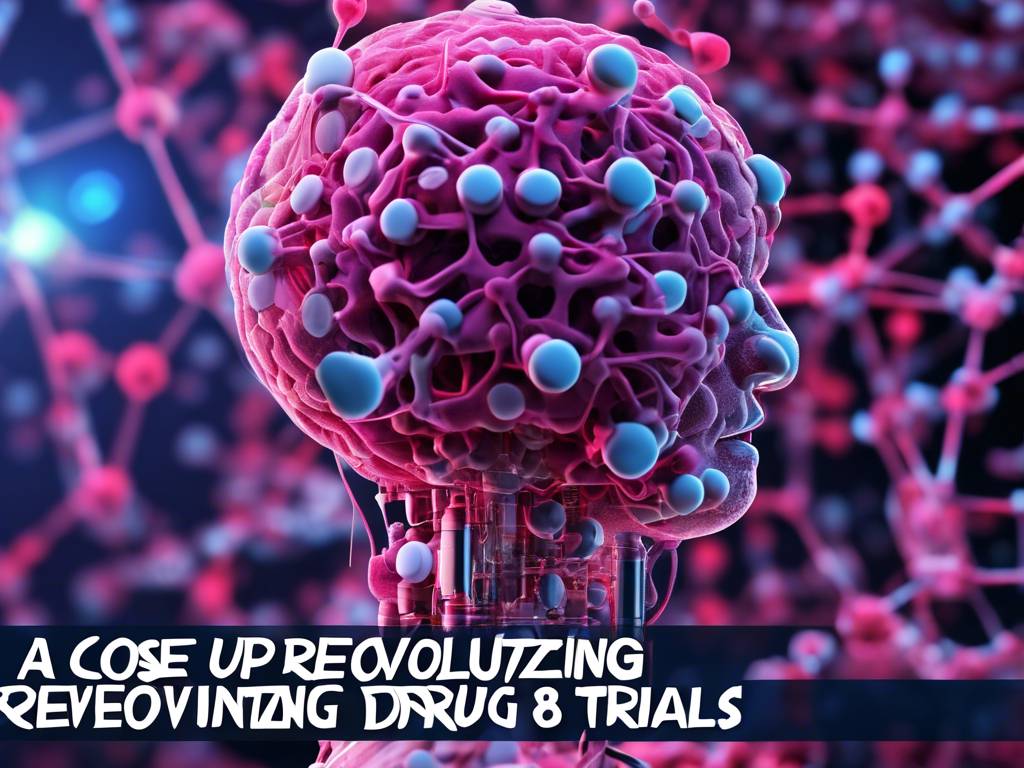Unlocking the Potential of AI in Drug Trials
Dear crypto reader, in the realm of drug trials, AI technology is revolutionizing the way we design antibodies for various protein targets. No longer limited to trial and error methods with mice, AI allows us to intelligently design antibodies that were previously impossible to create. This cutting-edge technology, spearheaded by David Baker at the University of Washington, opens up new possibilities in the field of drug development.
The Limitations of Traditional Methods
Traditionally, drug trials for antibody drugs rely on experimental models using mice to produce antibodies. However, this process is often hit or miss, as it can be challenging to design antibodies that bind to specific protein targets. With the sum of small interactions involved in creating antibodies, it becomes a complex and sometimes impossible task to achieve desired results using traditional methods.
– **Experimental Models like Mice:**
– **Replicate Human Immune Systems:** Mice are used in drug trials to mimic human immune systems.
– **Hit or Miss Process:** Traditional methods of antibody production can be unpredictable and inefficient.
The Role of AI in Antibody Design
By harnessing the power of AI, researchers can now overcome the limitations of traditional antibody design methods. AI algorithms can analyze vast amounts of data and predict how antibodies will interact with specific protein targets. This allows for the intelligent design of antibodies that may have been previously elusive through conventional means.
– **David Baker’s Innovation:**
– **University of Washington:** David Baker and his team at the University of Washington have pioneered the use of AI in antibody design.
– **Company Collaboration:** Baker is a co-founder of a company that is utilizing AI technology to revolutionize drug trials.
Advantages of AI in Drug Trials
The integration of AI in drug trials offers numerous advantages that can accelerate the process of drug development and improve the efficacy of treatments. By leveraging AI technology, researchers can:
– **Design Antibodies Intelligently:**
– **Precise Targeting:** AI can predict how antibodies will interact with specific protein targets.
– **Efficient Development:** Streamlining the antibody design process for faster results.
The Future of Drug Development
As AI continues to advance, the future of drug development holds promising opportunities for innovation and breakthroughs in treatment options. By combining AI technology with traditional drug trial methods, researchers can unlock new possibilities in creating customized antibodies for a wide range of diseases and conditions.
Challenges and Ethical Considerations
While AI technology offers immense potential in drug development, it also raises ethical considerations and challenges that must be addressed. These include:
– **Ethical Implications:**
– **Data Privacy:** Safeguarding patient data and ensuring ethical use of AI technology.
– **Bias in Algorithms:** Addressing and mitigating biases in AI algorithms used in drug development.
Hot Take: Embracing AI Innovation in Drug Trials
Dear crypto reader, the world of drug trials is undergoing a transformation with the integration of AI technology. By embracing AI innovation in antibody design, researchers can revolutionize the way we develop treatments and tailor solutions to specific protein targets. The future of drug development is bright with the potential of AI to drive breakthroughs in personalized medicine and enhanced treatment options.





 By
By
 By
By
 By
By


 By
By